Notebook
-
 Genetics
GeneticsProtein comparisons proposed in 1960s for tracking evolution
In 1965, two scientists spotted molecular signatures of primate divergence. The tool became widespread for studying evolution – and one researcher’s career ended in crime.
-
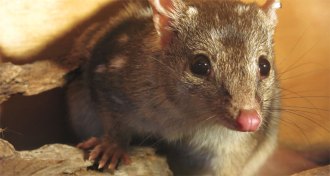
-
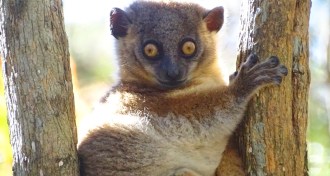 Animals
AnimalsLemurs expected to lose much of their ranges this century
As the climate warms, Madagascar’s little primates will lose habitat, threatening some with extinction.
-
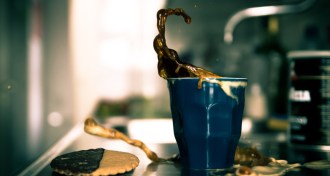 Physics
PhysicsWhy lattes are less prone to spills than regular coffee
Foam dampens liquids’ sloshing, keeping keeps lattes and beer from spilling so easily, researchers find.
-
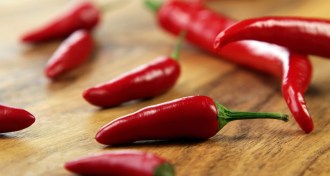 Life
LifeChili peppers’ pain-relieving secrets uncovered
Scientists discover how stuff that makes chili peppers hot relieves pain.
-
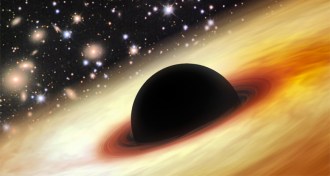 Astronomy
AstronomyMonster black hole lurks in the early universe
A black hole weighing the same as 12 billion suns is the most massive one known in the early universe.
-
 Health & Medicine
Health & MedicineCommunity protection against measles jeopardized
‘Herd immunity’ to measles may be threatened by low vaccination rates in some parts of the United States.
-
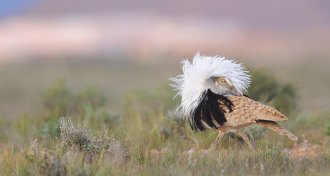 Animals
AnimalsFlamboyant old bustards keep showing off
Among outrageously flirtatious birds called houbara bustards, old males may pay a penalty for years of extreme display.
By Susan Milius -
 Planetary Science
Planetary ScienceSpace simulations of 1960s focused on survival
50 years ago, space simulations focused on survival. Now, quality of life is critical, too.
-
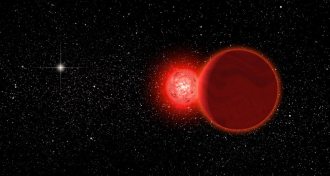 Astronomy
AstronomyClosest star approach to the sun
Astronomers discover a binary system that made the closest known flyby of the sun.
-
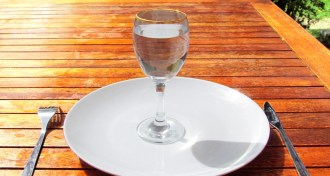 Life
LifeInsulin-suppressing hormone discovered
A newly discovered hormone suppresses insulin production and secretion in fruit flies and maybe in humans.
-
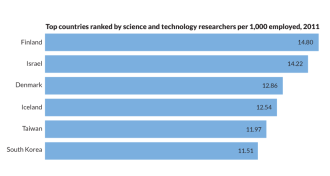 Science & Society
Science & SocietyU.S. research workforce lags by some measures
Scientists’ share of total employment is lower in United States than in 16 other countries.